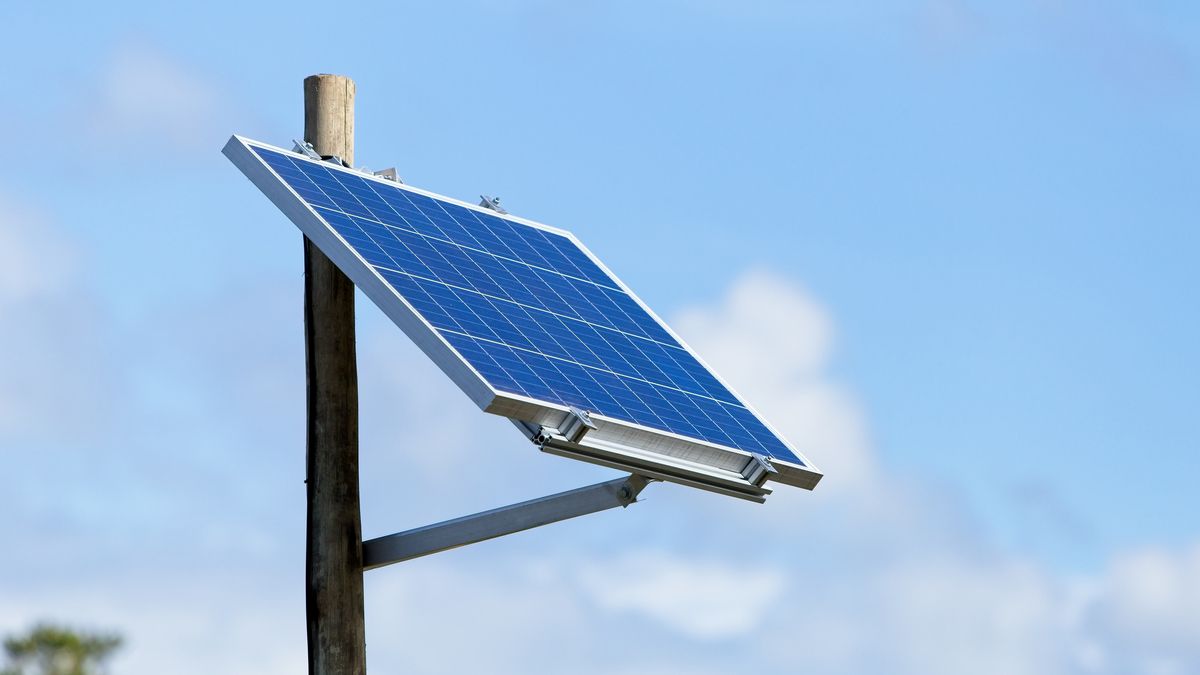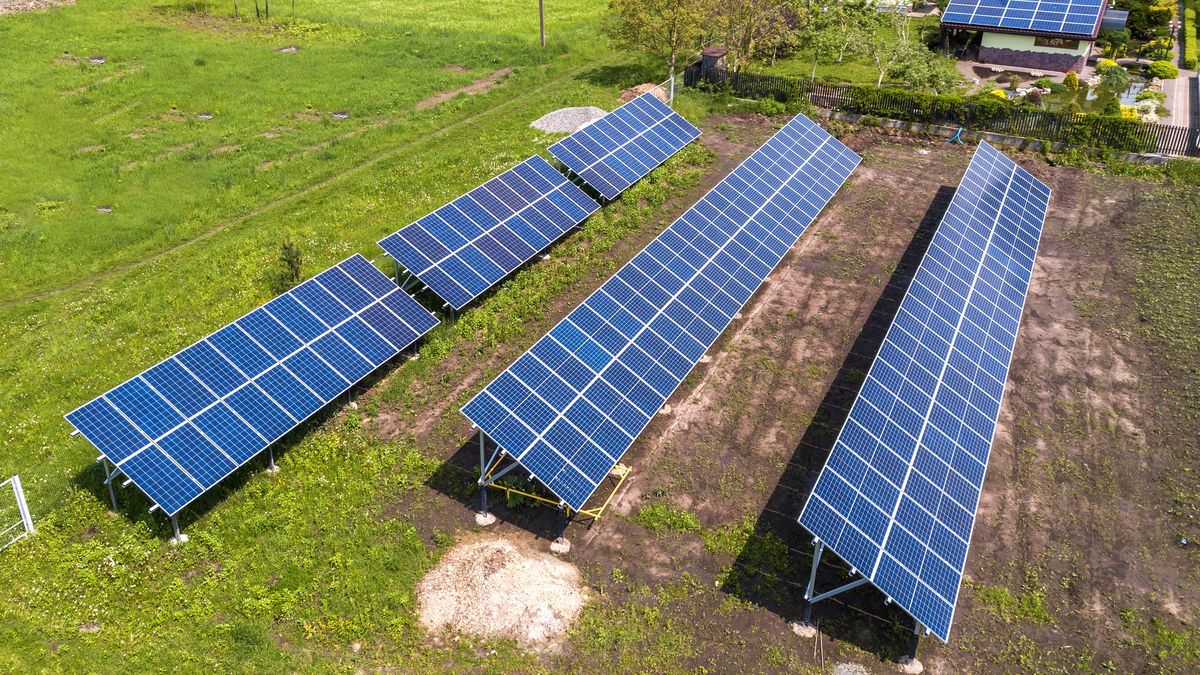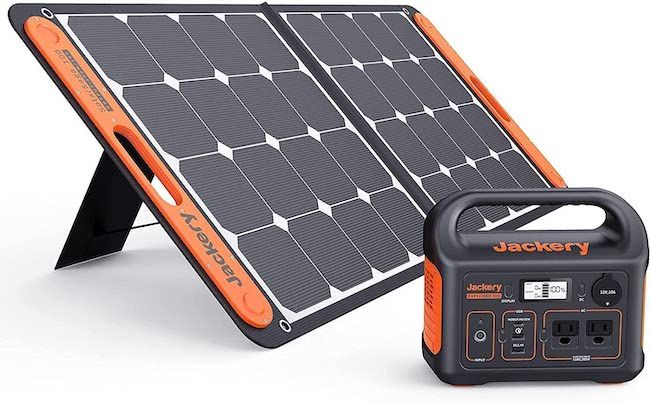Quick Links
Key Takeaways
Unless your landlord agrees to pay for the installation of permanent roof-mounted solar, you're more likely to get permission for ground based or solar-generator power that can be removed when your lease isn't renewed.
Whether you want to be more green or need backup power in case of a blackout, getting solar power for your home is a great way to do it. However, if you're renting you can't install just anything.
Talk To Your Landlord
Your first port of call should be the owner of the property. Rooftop solar installations are a significant property upgrade, so it's not something you can do without permission. It's also not something you should offer to pay for out of pocket since, in general, you can't take it with you when you leave.
Instead, it's best to convince your landlord that installing solar power will benefit them in the long run. The exact arguments in favor of this will depend on where you live, but in general, they include the following:
- Increasing the property value
- Making the property more attractive to tenants
- Government tax credits in some regions
- Higher rent can be charged
- Utility credits if more power is returned to the grid than is used
Suppose your landlord balks at the cost of such an installation. In that case, rent-to-own or other solar financing options are available, which can be offloaded on tenants, with the solar equipment ultimately belonging to the landlord.
This is the only way for renters to get a permanent fully-integrated solar power installation, but that's not the only way you can access solar power when you need it.
Ground-mounted Solar Power
Solar panels can also be installed on the ground. Although you'll still need permission from your landlord and help from them getting permits. That said, these solar installations are much easier to remove when you leave. Assuming that the landlord doesn't want to buy them from you or take over their lease at that time.
There are different ground-mount solutions. Typically a concrete foundation is laid, and then a metal frame to hold the panels is mounted on it. However, you can also use pole-mounted solutions that don't have as much impact on the ground. It's now also possible to use ground-screw mounts that don't involve concrete foundations at all, making them the easiest to remove and return the ground to its original state.
Although this is still a significant investment, it offers the option to take your solar installation with you to a new location. Still, you'll have to pay for the transport and re-installation costs, and of course, negotiate with your new landlord. That is unless you're moving from renting to owning your own home.
Plug-in Solar Systems
Plug-in solar panels are an interesting option that should be appropriate for most renters. These solar panels have micro-inverters that convert the DC energy of the panel to the AC power used by your home. They feed power into your home through a standard electrical outlet, synchronizing with grid power.
If the grid goes down, they'll switch off for safety reasons, so they aren't any use for backup power, but they can reduce or even eliminate your bill. These solar panels must be installed on a dedicated circuit for safety reasons, but other than that, they are plug-and-play and not a permanent installation.
You may still need permission from your landlord to feed power into the house from a source other than the grid, and the circuit you wish to use may have to be inspected by an electrician first to ensure it can handle the load.
Solar Generators
A "solar generator" is a battery backup inverter system connected to solar panels via a solar charge controller. Solar power charges the batteries and may also provide direct power to the inverter, which converts the DC power from the battery and solar panels to AC power usable with home appliances.
The panels that power the generator can be free-standing camping-style solutions or larger more permanent ones. The solar generator can be hooked into the home's electrical system by adding a generator transfer switch to the electrical distribution board. When the power goes out, the power switches over to the generator. Either automatically or manually, depending on the type of switch you install.
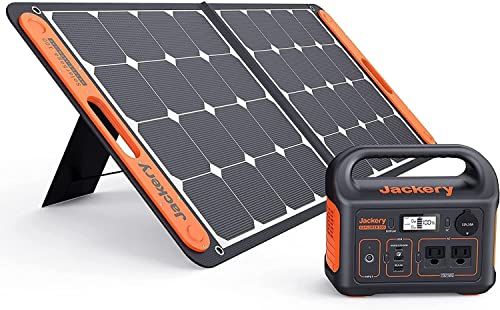
Jackery Solar Generator 300
This 300W solar kit from Jackery includes a portable power station and a portable 300W solar panel. With a maximum 300W output, you can power most small appliances and computer equipment without breaking a sweat.
Even if you don't have enough solar power to prevent the battery backup from draining, it will extend the running time, and both grid power and solar power can be used to top the batteries up again. This is a great solution for renters because the only thing you might have to leave behind is the generator transfer switch when you move again.
Portable Power Stations
Portable power stations are battery backup inverters designed to go with you wherever you may need them. Many models either include a solar charge controller or can be connected to a solar charge controller. This means that if you buy a suitable solar panel, the portable power station can charge and even run off solar power.
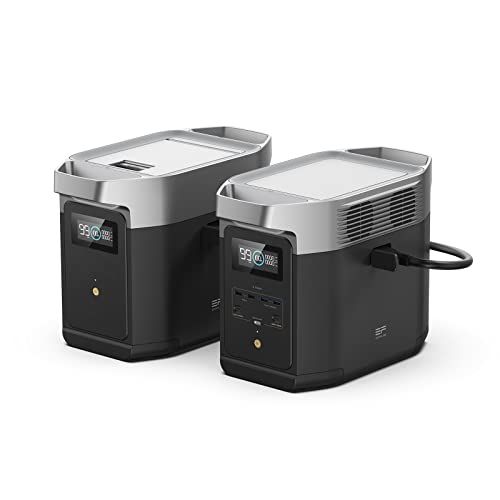
ECOFLOW Delta 2 Portable Power Station with Extra Battery
With massive extended capacity and fast charging from mains, this ECOFLOW Delta 2 bundle will meet the needs of most homes running basic appliances during blackouts.
You can pack all of this gear away while the power is on, and only roll it out when a blackout strikes. This won't help you reduce your electrical bill, but it will ensure that you have a source of emergency electricity that doesn't rely on fossil fuels. As long as the sun shines, you'll have power for the essentials.
Solar Water Heaters
Not all solar power is electrical. Solar water heaters use the direct heat energy from the sun to heat your water for home use. Electrical or gas water heaters are a significant monthly cost, so switching to a solar water heater can cut your power or gas bill. On top of that, these systems are less complex and costly than solar electricity installations.
Since these heaters generally use rooftop-mounted panels, it's still a permanent installation, but you may have an easier time convincing your landlord of the benefits, and since it's much less costly they may be more inclined to make the switch. Especially if the current water heater is reaching its end of life and will have to be replaced anyway.
Rent a Place With Solar Power
Although as a tenant you're options are limited, there's still plenty of solar power technology you can buy to make your life easier, or save some money on your power bill. However, if you don't want to deal with any of that, why not look for a rental home that's already outfitted with solar power?
As long as you know what sort of solar power system you're looking for and why you want it (e.g. environmental reasons, or blackout prevention) you can probably find a reasonable place ready to occupy. Over time we expect more and more properties to have solar power built in, so keep an eye out for it in the property ads.

